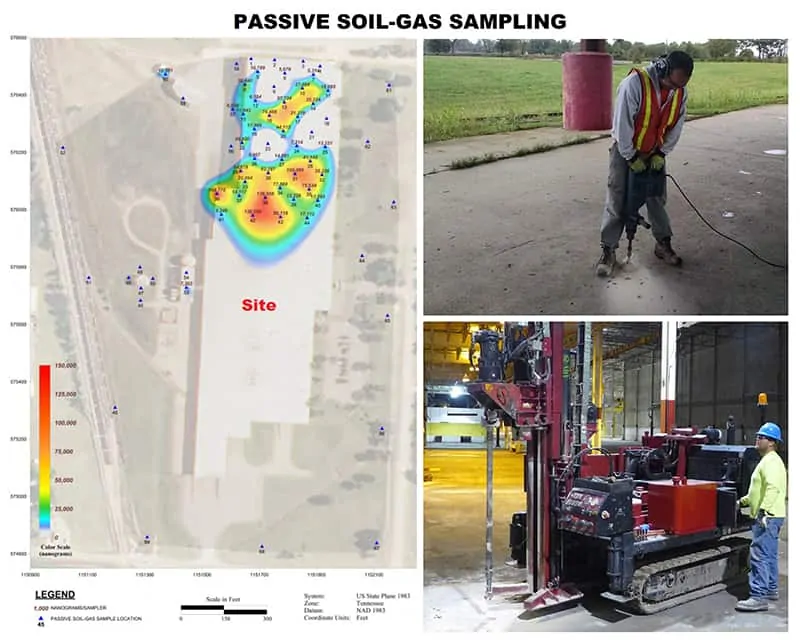This brownfield property, which was vacant for seven years, consisted of 84 acres of land, a 500,000-square-foot industrial building and was previously used as an automotive part manufacturing plant. Based on prior environmental reports, numerous environmental concerns were present which were complicating its sale. These included a 250,000-gallon diesel storage tank, a 10,000-gallon solvent wastewater tank, numerous hydraulic pits and reports of spills and cleanups throughout its 30-year operation. The buyer wanted a high level of confidence the property was unaffected by environmental issues.
Due to the number of RECs and the predicted cost to investigate using standard investigative techniques, Phoenix suggested using passive soil gas sampling techniques as a way to rapidly evaluate the environmental issues. Passive gas sampling was to be followed up by installing 20 soil borings to assess any “hot spots.” During the Phase 2 ESA, Phoenix personnel coordinated and oversaw the activities of a geophysical subcontractor during its electromagnetic (EM)/ ground penetrating radar (GPR) survey; supervised personnel during their installation of 69 BEACON® Passive Soil-Gas (PSG) Samplers at the site; supervised the activities of a drilling subcontractor; interpreted the laboratory chemical analysis results by comparing them to applicable Tennessee Department of Environment and Conservation (TDEC) guidelines; and prepared Phase 1 and Phase 2 ESA reports. At the request of the client, our reports were issued in draft form. The client indicated its risk tolerance for this site was extremely low. After discussing risks and potential liabilities with the client, Phoenix finalized the reports.

Passive gas sampling identified several areas on the site where impacts were present. These impacts were limited in nature and did not appear to be migrating offsite or to pose a CERCLA (aka, “Superfund”) concern. Due to the client’s low risk tolerance, it requested we take a conservative approach to the impacts. Phoenix, therefore, recommended additional assessment to quantify impacts in soil, soil-gas and groundwater.
Phoenix’ recommendation to use passive soil gas sampling allowed the client to save $100,000 and allowed the client to evaluate the property adequately within its due diligence period.
© 2023 Phoenix Environmental. All Rights Reserved.